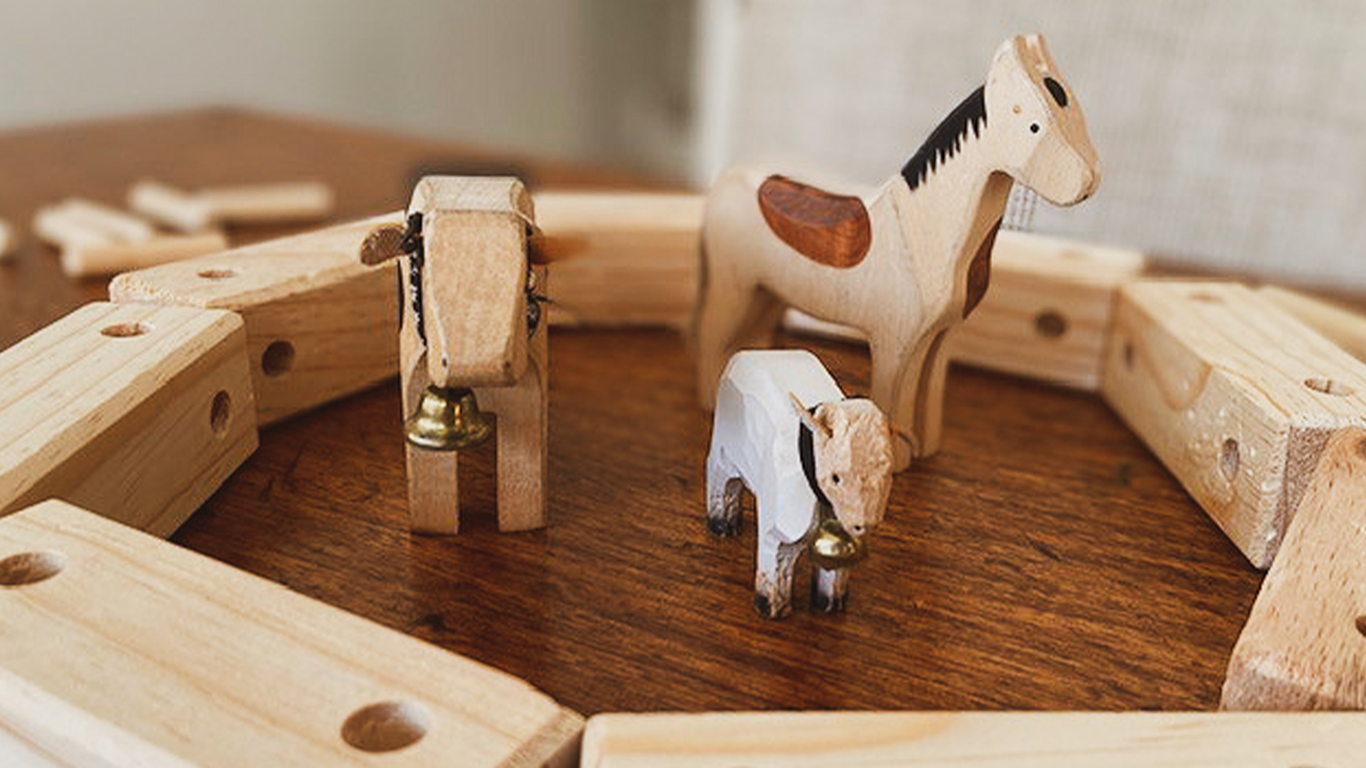Dr Carmen On The 7 Developmental Stages Of Block Play
This week we chat to Dr Carmen, AKA @momdoc_sa on Instagram, about the 7 developmental stages of block play. She unpacks the invaluable importance of a "simple building toy" during early childhood development:
"Our Knock-a-Block has been a huge hit since day one. We’ve all had so much fun (mom and dad included) creating our masterpieces and I’ve especially enjoyed using the hammer to release some lockdown frustrations!

The Knock-a-Block comes with 9 wooden blocks, 30 wooden dowels and a wooden hammer. It’s the perfect toy for all kinds of play and we all know how important play is for healthy brain development. In fact, play is so important that it has been recognized as a basic human right for every child.
Introducing children to block play at an early age is invaluable. Playing with blocks is a rite of passage in childhood and not only fun but very educational. There are actually seven developmental stages of block play through which children move.

Stage 1: Carrying (ages 1-3)
Where blocks are simply carried around and dropped but not used to build anything.
Stage 2: Stacking (ages 2-4)
This is when building starts and children start to stack the blocks on top of each other or next to each other in rows on the floor.
Stage 3: Bridging (ages 3-4)
Now children are able to build a bridge or passage-way with the blocks where two blocks support a third on top.
Stage 4: Enclosing (age 4)
Here the blocks are constructed so that they enclose a space. Kids start to build animal farms and zoos enclosing their animal figurines within this space.
Stage 5: Patterning (ages 4-5)
In this stage children start to use more blocks to create structures using patterns and symmetry whilst learning more about balance.
Stage 6: Complex structures (ages 5 and older)
This is when symbolic play begins and purposeful structures start to get built.
Stage 7: Building representations (ages 5 and older)
At this stage children are able to build larger more complex structures for dramatic play, such as castles and forts.

Playing with blocks is important for social, physical, cognitive and creative development and the additional use of the hammer and dowels makes the Knock-a-Block even more valuable.
Block play can help children to learn about risk-taking, making choices and decisions. It teaches children confidence and problem solving. It helps develop hand eye co-ordination and fine and gross motor skills. It is an excellent tool for exploring math and science concepts, such as size and shape, weight, balance and gravity enabling children to learn about cause and effect. Building and hammering can also help explore spacial language and practice position words such as above, below, on top, underneath and next to.

There are countless other developmental skills block play can promote and the Knock-a-Block is a must have for every child. It will make the perfect addition to their collection of toys because not only is it the perfect open-ended toy for all your child’s developmental needs but it is also beautifully handcrafted, eco-friendly and proudly South African."
